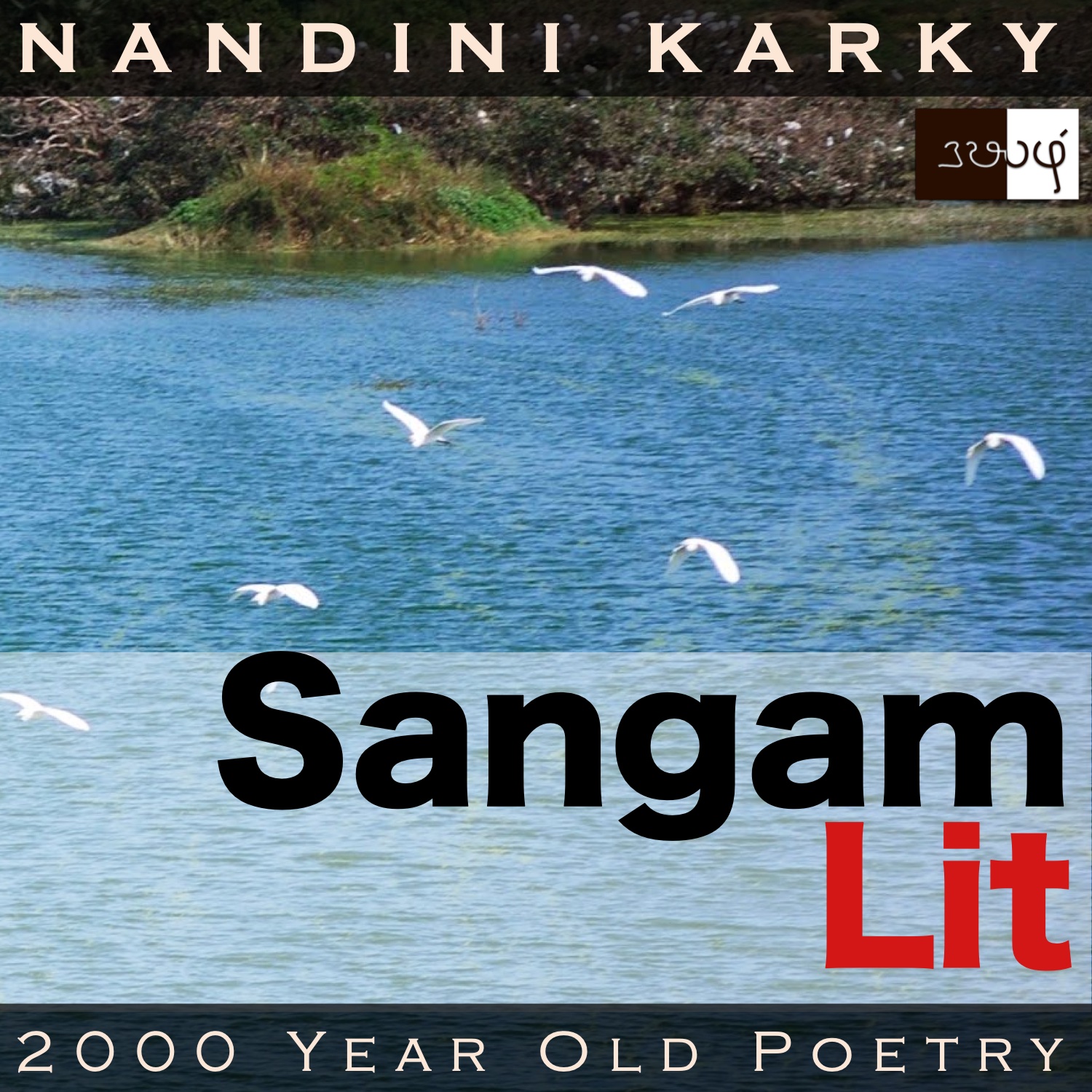Podcast: Play in new window | Download
Subscribe: Apple Podcasts | Spotify | Amazon Music | Android | iHeartRadio | TuneIn | RSS | More

In this episode, we observe how a city transforms in the view of a beholder, as depicted in Sangam Literary work, Kurunthogai 166, penned by Koodaloor Kizhar. Set in the coastal regions of ‘Neythal’, the verse speaks in the voice of the confidante to the lady, conveying the lady’s state as she’s confined to the house.
தண் கடற் படு திரை பெயர்த்தலின், வெண் பறை
நாரை நிரை பெயர்ந்து அயிரை ஆரும்,
ஊரோ நன்றுமன், மரந்தை;
ஒரு தனி வைகின், புலம்பு ஆகின்றே.
‘Seabirds in a seaside town’ flutter in this verse. The opening words ‘தண் கடற் படு திரை’ meaning ‘waves of the cool sea’ situate the verse on the seashore. After describing elements of the land, the verse turns to focus on an element of nature found in this landscape in ‘வெண் பறை நாரை’ meaning ‘seabirds with white wings’. In ‘அயிரை ஆரும்’ meaning ‘eats loach fish’, we see the reference to a freshwater fish and know that the scene has moved inland from the seas. Sure enough, we see the line ‘ஊரோ நன்றுமன், மரந்தை’ meaning ‘It’s a fine town – Maranthai is’, referring to the city of ‘Maranthai’ or ‘Maanthai’, an unidentified Chera sea-port mentioned in verses Kurunthogai 34, Natrinai 35 and 395. Ending with the words ‘புலம்பு ஆகின்றே’ meaning ‘it becomes sorrowful’, the verse welcomes us to listen with empathy.
What can those flying seabirds tell us about the sorrow hinted at? The context reveals that the man and lady were leading a love relationship and they were trysting together. At this time, the lady’s parents decide to confine the lady to the house. One day, the confidante says, “As the cool sea waves disperse them, the flock of white-winged seabirds leave to feed on the ‘ayirai’ fish in the town of ‘Maranthai’. It’s a beautiful town but when living alone, it becomes one of sorrow!” With these words, the confidante illustrates the lady’s feelings as she remains parted away from the man.
Let’s take a longer walk into this seaside town to know more! The confidante first talks about the resounding, cool sea waves dispersing a flock of white-winged seabirds. This flock then turns and feeds on the loach fish in the good town of ‘Maranthai’, she adds. Some scholars have interpreted the sea waves as dispersing the loach fish, but the thing to be understood is that the loach is a freshwater fish. So, I have interpreted this, as the seabirds giving up their preying on the saltwater fish and turning inland into the town of Maranthai, which is no doubt, filled with ponds and tanks, teeming with loach fish. Returning, we find the confidante mentioning, ‘Maranthai’ is such a joy-filled town but adds that, when a person is alone, it totally transforms into an abode of sorrow.
In the previous Sangam verses mentioned, we have seen how the beauty of ‘Maranthai’ is compared with the beauty of the lady. This is high praise for a town in Sangam times to be equated with the charm of the female protagonist. Here too, ‘Maranthai’ is seen as a beautiful, joyous town but the difference lies in how it appears in the eyes of the one separated from their beloved. It totally moves to the other end of the spectrum, far away from joy and beauty and becomes dull and doleful, the confidante tells us. Through this, the confidante is verbalising the sadness in her friend’s heart. At the same time, through that reference to the seabirds seeking loach fish, after being dispersed by the sea waves, the confidante conceals a metaphoric consolation. She means that like the seabirds finding another way to feed themselves, the man too would not be dissuaded by the lady’s confinement and would take steps to seek the lady’s hand and unite with her once again. The verse seems to highlight two defining aspects in perception: One, the world outside is always influenced by the world within us, and two, no matter how many impediments rise in one’s path, there’s always another way to reach what one seeks!




Share your thoughts...